Thoughts on Thoughts: The Isles' holdout rule, the Bruins' dressing room issues, and more

Thoughts on Thoughts is a feature that looks at Elliotte Friedman's terrific weekly post, "30 Thoughts." Justin Bourne selects his five favorite tidbits, and elaborates.
Elliotte Friedman’s 30 Thoughts: What Voynov’s return to Russia could mean
****
Howdy y’all. It’s time for the 2015-16 NHL season’s first edition of Thoughts on Thoughts. Below, we’ll discuss Charles Wang's "rule," getting shots through from the point, the Bruins' dressing room issues, Alex Galchenyuk's relationship with Michel Therrien, and what will become of Noah Hanifin.
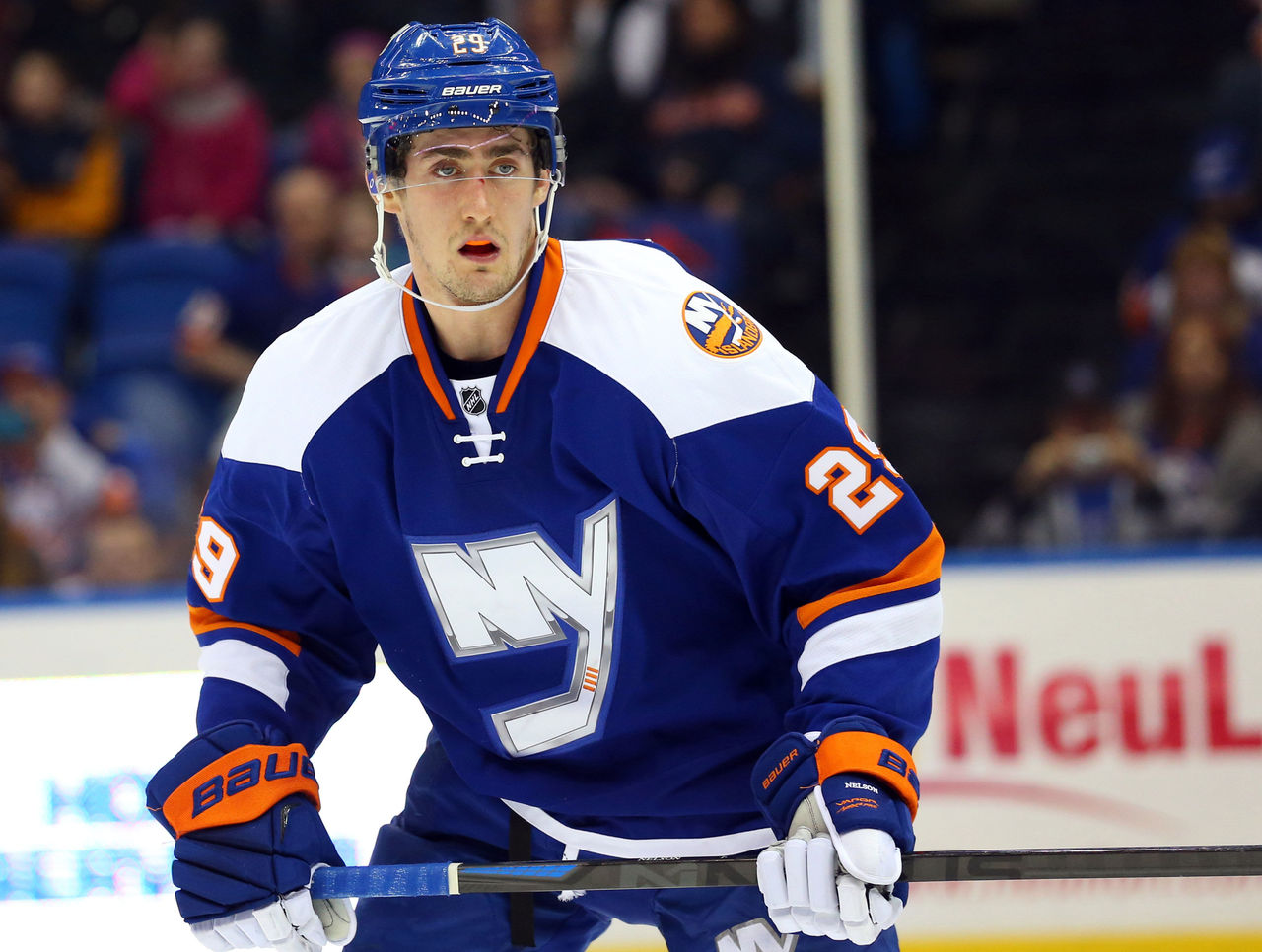
1. More on L.A. in a second, but first: At the draft, one agent pointed to Brock Nelson and the Islanders as a stalemate to watch. Owner Charles Wang’s rules state those absent when camp starts don’t play, essentially giving a deadline of 7 a.m. Thursday. At some point, GM Garth Snow offered Nelson a seven-year extension, which didn’t happen. There were rumours New York took a very hard line, offering two years at a total of around $2.5-$2.7 million, but the Islanders denied that hours before Nelson agreed to a three-year, $7.5-million deal. Apparently, anyone who asked to trade for the forward was told he’s not available.
I just could not be more skeptical about this “Wang rule.” It’s come up frequently over the years but has only had to be enforced once: nearly a decade ago on Sean Bergenheim, fresh off his 28-game, nine-point 2005-06 season (55 AHL games), who was negotiating with a salary floor team not remotely committed to actually winning. Yet, somehow this gets dredged up as proof that "they’ll do it, these Isles will really drop the hammer on that guy."
When Bergenheim returned the next year (78 games, 22 points), the Isles started a streak of five straight missed postseasons, the Coliseum continued crumbling at the foundation, the fans stopped showing up, and things got f’real f’real bleak. Desperation crept in.
In turn, I can’t be convinced that if three days into training camp Nelson’s agent had called Garth Snow and said “Y’know what, this big, young, top-nine power forward coming off a 20-goal, 42-point sophomore season is willing to sign for the terms you’ve offered,” that a money-spending 100-plus point team on the upswing trying to drop anchor in a new city with new fans in a tight division would’ve allowed their GM to say “Nu-uh, we just see no way around this dilemma. HEY LOOK SEAN BERGENHEIM IS ON THE WIRE.” (Seriously, he is.)
If that’s possibly true that they would’ve stuck to it, holy hell, can Jonathan Ledecky and Scott Malkin wrest the majority stake in the team even sooner than planned?
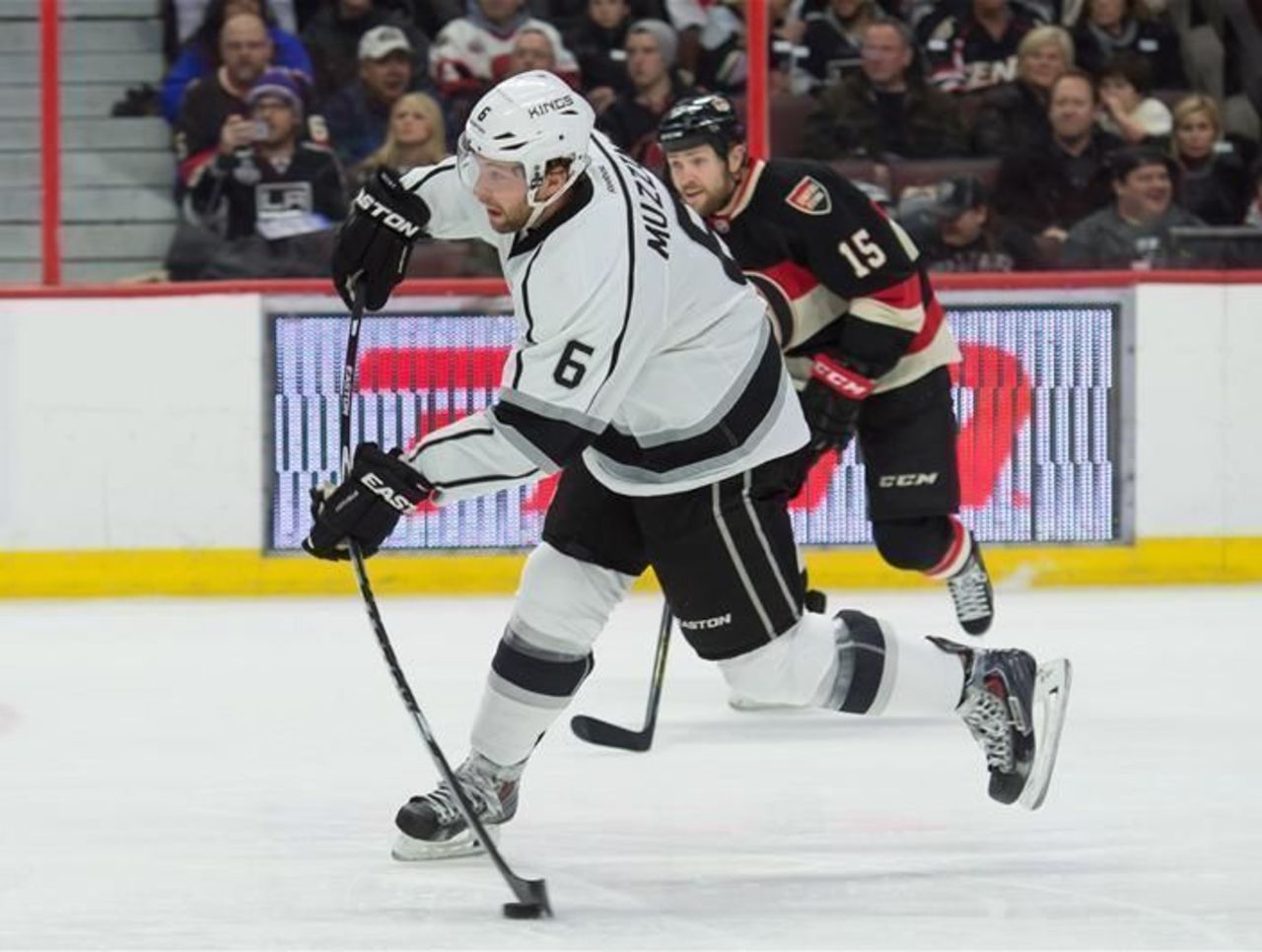
3. Jake Muzzin drove down Highway 401 a few times per week in late August to play some games with regular defence partner Drew Doughty and a collection of NHLers who stay in the London, Ont., area. They didn’t pair in scrimmages - "I see enough of him," Muzzin joked - but did work on a few things.
"We looked at all our shot attempts and practised getting them through more often,” he said. “Being more mobile on the blue-line, changing the angles…shooting off different feet. What else can we do instead of making a dead play? We play so many games, you get tendencies and habits…good and bad ones. We worked to change the bad ones."
That quote by Muzzin is interesting, because it’s gone from something only the best made a priority, to something all defensemen focus on. I described the task for D-men in detail here using a football analogy - in sum, there are now layers you need to see to get pucks through, not just one guy - but now it makes me wonder about the role of defensive wingers.
Mike Babcock has talked about how much harder it is playing D as a winger today; with this heightened focus for shooting D-men on getting pucks by them, what can they do differently? What will they do differently?
It'll be curious to watch this inevitable evolution. Will they sag lower to have more reaction time to block shots? Will they ramp up the skate padding so they can make more kick saves? Will they all have to start playing like stop-and-start penalty killers in the D-zone?
All I know is, the days of coasting into the zone and waiting for your crack at offense is over for wingers, which has to make those constantly hardworking centerman kinda happy.
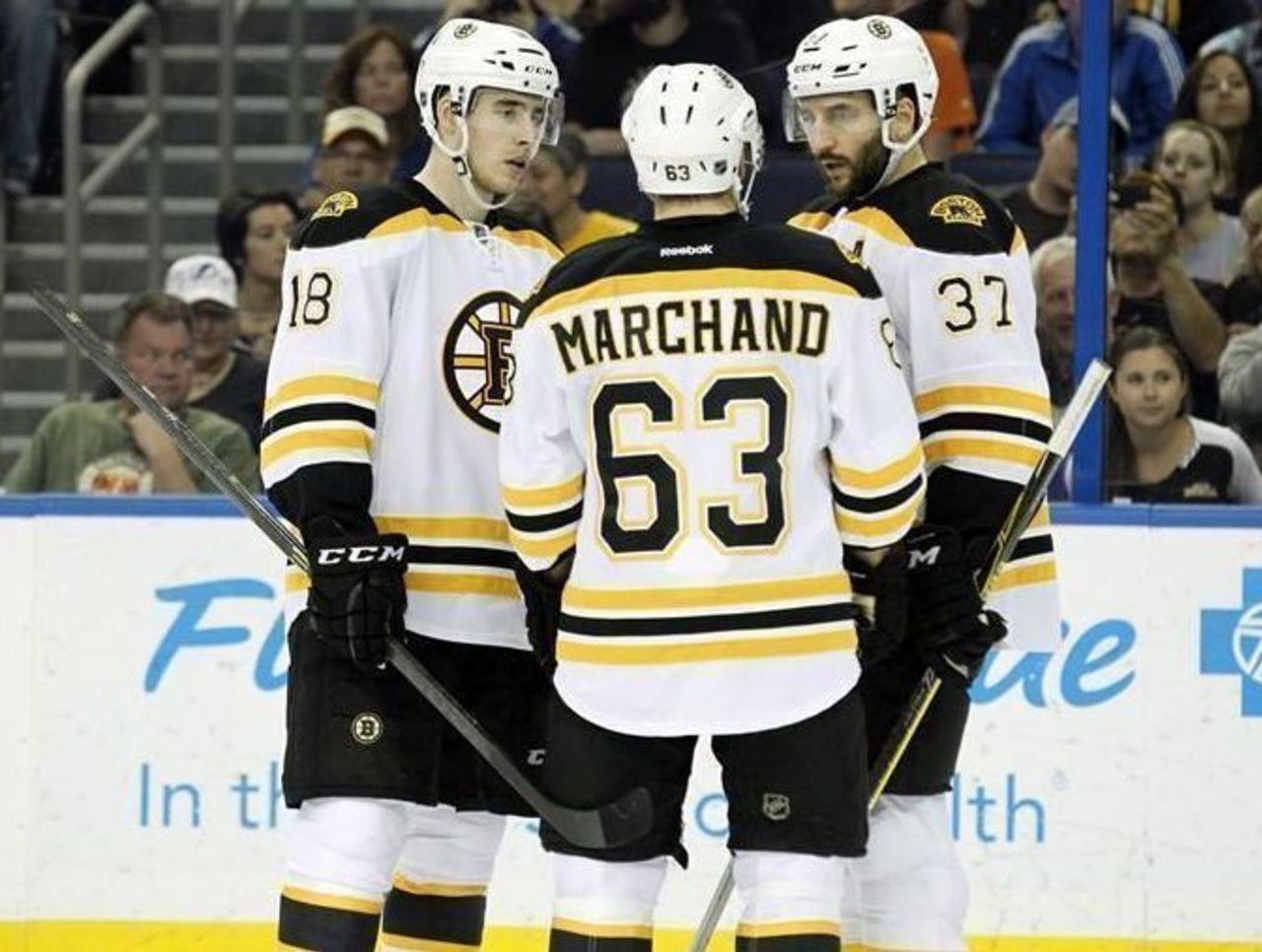
10. CSN’s Joe Haggerty sprayed some napalm Tuesday with a blog about the Bruins’ dressing room issues last season. I spoke about it with one exec who said it didn't surprise him. "One of the toughest things to do is introduce change on a successful team, particularly if your core doesn’t think it’s necessary. You get pushback." One of the unconfirmed stories I heard last year was complaints about new blood getting power play time, and you can see that was probably true. Now that Boston missed the playoffs, the critical question is whether or not the veteran core understands change must come.
While all pro hockey dressing rooms inevitably have cliques just by virtue of circumstance - kids who play "Call of Duty" and dads who clean doody have surprisingly little to talk about - it's fairly rare for one to wish ill on the other.
But, it does happen, and when it does, man does it get messy.
In this case, I can see how the Bruins ended up as a group that lost its last three games and missed the playoffs by two points. Any time a new group of people joins a team with the intent of taking the jobs of another group, relationships suffer and become unproductive, if not destructive, on both sides. It takes some real leadership to unite the two, and if the older group is just resentful of suddenly being pushed, it’s never going to happen.
With the Bruins' roster overhaul, a fresh start, and a wishy-washy Atlantic Division, I could see them put up a few wins in the early weeks, get some good juju going, and roll towards a better finish than last year.
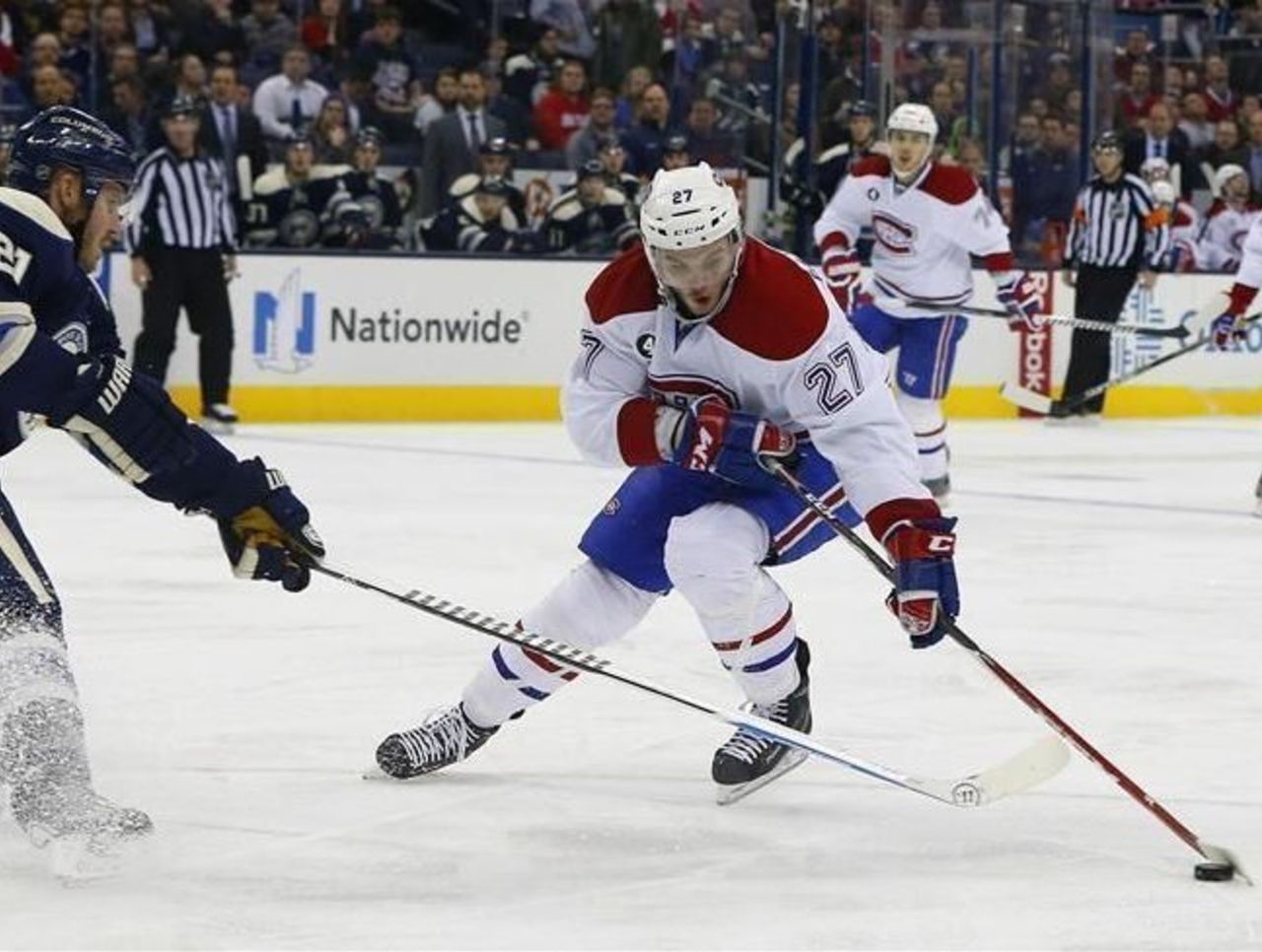
15. The Montreal Canadiens hope they don’t have to do the same - that Alex Galchenyuk starts at centre and stays there. His first game down the middle last season was the the team’s first at home after Jean Beliveau died, and he was terrific against the Sedins in an emotional evening. He had four goals and seven points in his first eight games at the position, then three in six after the calendar flipped to 2015 and the experiment ended. His possession numbers also saw a significant drop. There was a lot of debate in Montreal as to whether Michel Therrien or Galchenyuk himself made the decision to switch back, but the truth is both sides were uncomfortable with where things were going. It makes more sense to start there, but there must be a willingness to stick with things when tough times inevitably arrive. Galchenyuk had four points in his first three games after going back to the wing, so managing that temptation may be a challenge, too.
When playing in the American League I talked to a number of players who had spent at least a little time under Michel Therrien, and boy, were the relationship reviews not flattering. He can be hard on guys. It sounds like Therrien has changed for the better over the years - like Ken Hitchcock, he’s learned to soften and deal with the type of coddling, er sorry, handling young up-and-comers thrive under these days. But color me skeptical that those kid gloves aren't starting to get a bit itchy on Montreal's coach, which could be bad news for Galchenyuk - who, rumors have it, also can be a little bit difficult at times.
Both guys have years left on deals with the team, so I’m curious to watch their relationship unfold. Galchenyuk is headed into that fourth “breakout year” you hope for from young stars, but if the Habs start going a little rough (which isn’t all that far-fetched), and he isn’t putting up numbers, and the center transition sputters a bit … I dunno. I say this fully uninformed, but if this situation isn’t where Therrien wants it in year four, I could see these two butting heads a bit this year.
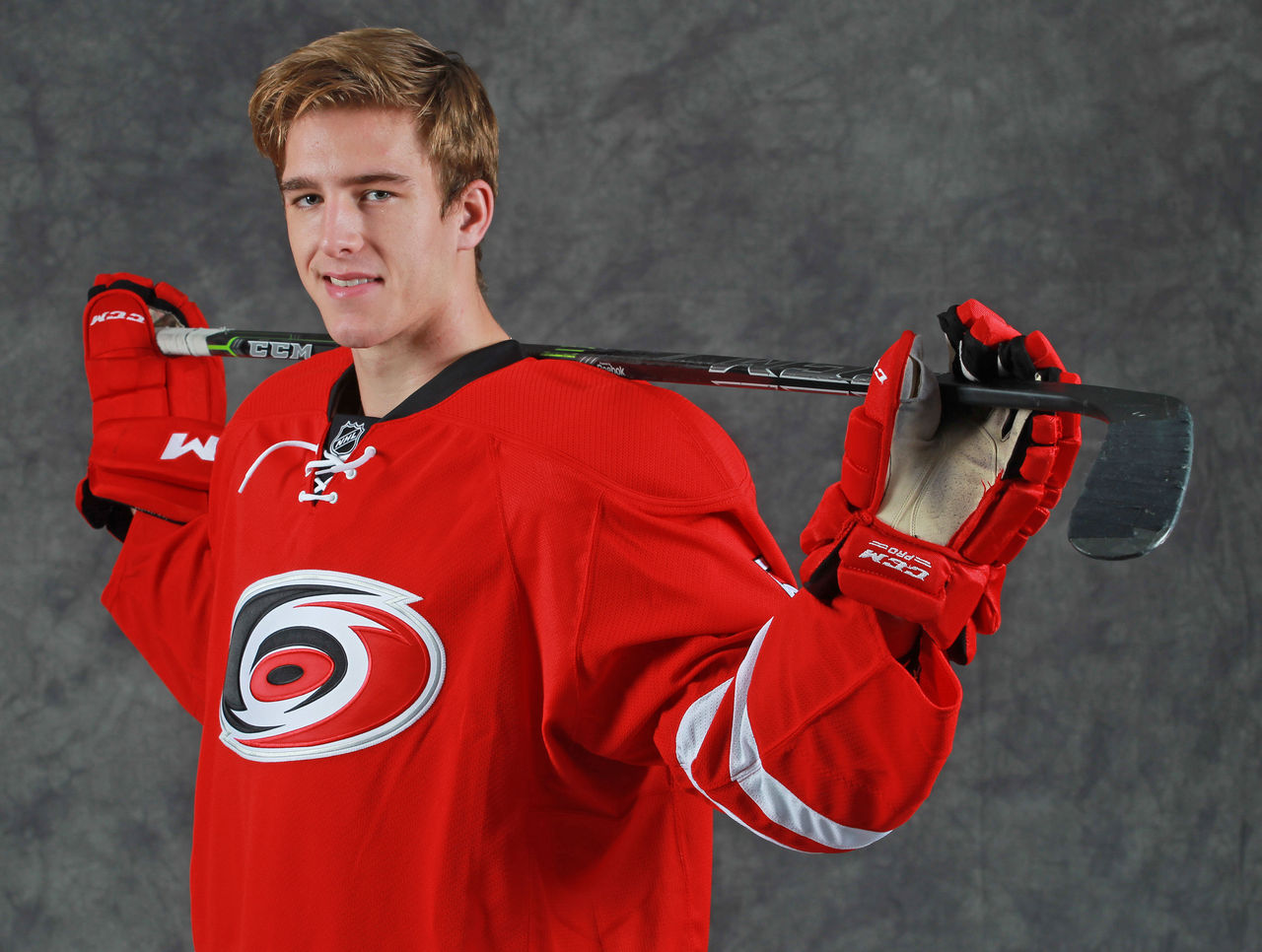
22. Carolina's Noah Hanifin is another big-time film watcher. He'll watch all his shifts post-game, but also makes sure to analyze the likes of Duncan Keith. What does he look for? "How he reads the play," the fifth-overall selection answered at the NHL Rookie Showcase. "How does he defend an odd-man rush, how does he know when to take a risk so that it doesn’t hurt his team?" Hanifin says he knows that, as a rookie, his mistakes will be heavily scrutinized, but knows he's not helping the Hurricanes if he's too cautious to try.
It’s going to be interesting to see what becomes of Noah Hanifin. In watching him play in college, it’s almost impossible to tell how he's going to be at thinking the NHL game, because his skill set was so far beyond the bulk of his college opponents he could basically just skate himself out of trouble.
While his numbers (five goals, 18 assists in 37 games as a true freshman D-man) were very good, some of the decision-making he showed when trying to get pucks through from the line were a bit curious (there was no shortage of shinpads hit). And beyond that, it seems liked decisions rarely needed to be made thanks to his raw abilities. (After all, why dink and dunk like Fred Funk when you can just pull out the Dustin Johnson and overpower the course?)
Beyond his NHL early seasons, I’ll be watching - will that raw talent continue to grow, and sustain him enough to produce a good amount of offense? Will he show himself to be a perfectly capable thinker? Or is it possible Hanifin was just a player so big and fast so young that the NHL will expose him as someone more from the Erik Johnson pool of prospects than that of the Doughty/Keiths?
HEADLINES
- Fleury records shutout in final game at Bell Centre
- Report: Flames trade Kuzmenko, Pelletier to Flyers for Farabee, Frost
- Report: Blue Jackets talked to Canucks about Pettersson
- Utah resurrects Outlaws as possible team name, drops Wasatch
- NHL Inbox: Montembeault on Canada? Most promising Red Wing? U23 Olympics?